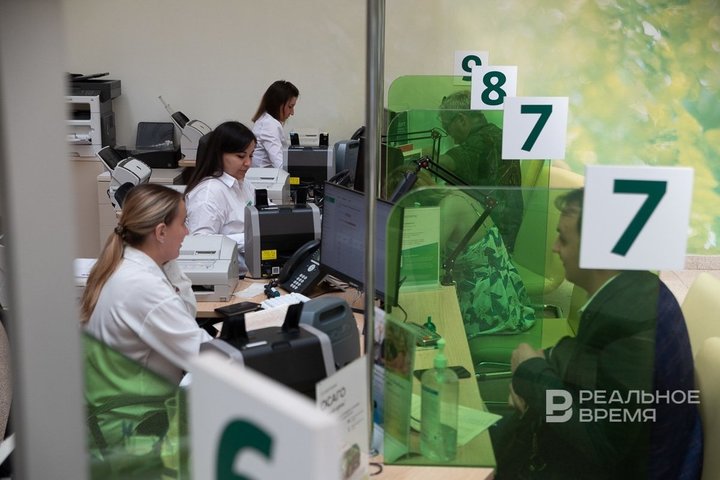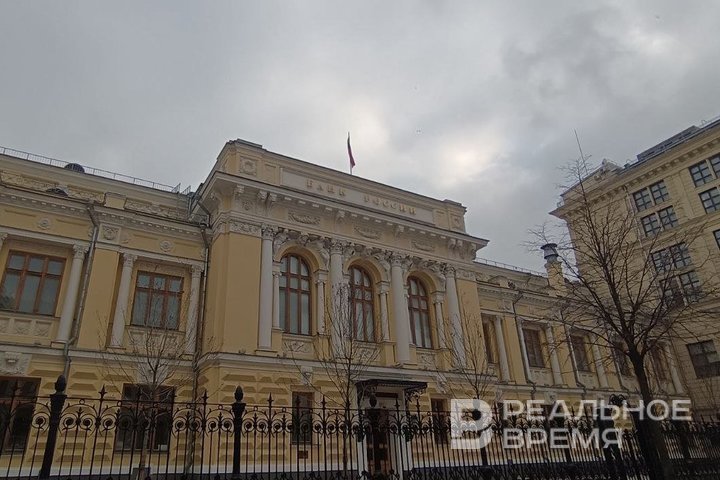The share of overdue debts of citizens increases sharply in Tatarstan
The amount has reached 36 billion rubles and with the new law on collection it may grow even more, but experts believe: “Microfinance organizations will survive”

Collectors and microfinance organizations may be prohibited from collecting debts of Russians by court order. Money is often written off without notifying the debtor, which is especially dangerous for vulnerable categories of borrowers. A bill has been submitted to the State Duma that should protect their rights. Most experts support the initiative, although they admit that the share of overdue debt of citizens on loans, which has already reached 1.5 trillion rubles on a national scale, and 36 billion in Tatarstan, may grow even more.
Since the beginning of the year, overdue payments in Tatarstan have grown by 16%
Tatarstan residents have taken out more loans from banks than other residents of the Volga Federal District — for a total of 1.1 trillion rubles (1,108,802 million as of 1 May 2025), according to the Central Bank. Overdue debts of this amount account for 36 billion (35,870 million) rubles, or 3.2%, which is lower than the all-Russian indicator (4.2%). But the increase since the beginning of the year is significant — since January, overdue payments have grown by almost 5 billion rubles (+16%).
In general, in the Volga Federal District, the population's debt to banks is 6.3 trillion rubles, of which overdue payments are 259 billion rubles. At the same time, if at the beginning of the year in almost all subjects of the Volga Federal District the amount of debt of individuals decreased, then from April-May in nine regions, including Tatarstan, it began to grow. In addition to our republic, the top three leaders in terms of debt size include Bashkortostan (1,034,469 million) and Nizhny Novgorod region (596,169 million).
However, in terms of the amount of overdue debt, Bashkortostan residents are ahead of Tatarstan residents — 45 billion (45,406 million), or 4.4% of the total debt. In third place with the largest amount of overdue debt in the district are Samara residents with 33 billion (32,939 million), or 5.5%. The percentage of overdue debt in this region is the highest in the Volga Federal District, approximately at the same level in Saratov (5.4%), Orenburg (5%) and Ulyanovsk (5%) regions.
Generally speaking, in Russia, overdue debt of citizens has reached 1.5 trillion rubles and may soon grow even more, experts believe. One of the reasons is the new procedure for debt collection, which is proposed in the new bill from the LDPR. Its authors want to prohibit collectors and microfinance organizations (MFOs) from collecting debts by court order, when the borrower's money can be written off without his knowledge.

“Will reduce the volume of fraud among professional collectors”
The bill has been submitted to the State Duma, it proposes to change the procedure for debt collection itself. Currently, collectors and microfinance organizations collect debts through simplified order proceedings. As part of the procedure, a court order is issued, which simultaneously serves as a court decision and an enforcement document. To obtain an order, the interested party simply files an application with the court.

The case is considered without calling the parties, and the defendant learns about this already at the stage of enforcement proceedings, that is, forced collection, the deputies note. According to them, conflict situations often arise when banking organizations transfer minor debts by assignment to professional collectors, and they “are not distinguished by conscientiousness in their behaviour, which is evident from numerous complaints from citizens.”
“There are a large number of professional procedural tricks that allow defendants not to receive court orders in time to cancel them and request consideration in the usual claim procedure. For example, an “error” in the defendant’s address in the application that the plaintiff files with the court. As a result, no correspondence will reach the defendant,” the explanatory note says.
The developers of the document propose limiting the ability of professional collectors to receive enforcement documents in an accelerated and simplified manner. In their opinion, debt collection should take place “exclusively in the usual claim procedure, with the mandatory summoning of the parties to participate in the trial in order to provide citizens with the opportunity to defend their rights, reduce the interest collected, which will reduce the volume of fraud and abuse among professional collectors.”

The corresponding amendments are to be made to Article 122 of the Civil Procedure Code of the Russian Federation. The authors of the initiative are State Duma deputies from the LDPR, headed by Chairman of the State Duma Committee on Social Policy Yaroslav Nilov and Senator Elena Afanasyeva.
Debt collection periods and shadow lending risks will increase
If the law is adopted, it will protect borrowers from unexpected write-offs, experts say. Currently, creditors receive court orders and act without notification or consent of the debtor, and the new rules will oblige them to consider claims in the general order — with the summons of the parties and the possibility of challenging.
According to Realnoe Vremya's interlocutors, the initiative will establish a fairer procedure for interaction between creditors, collectors and the debtor. The law will allow courts to reduce excessively high interest rates on loans and provide citizens with deferments, protecting them from the aggressive methods of collectors. Although in general this may increase the terms of debt collection and the risks of illegal lending.

According to the Central Bank data, the amount of overdue debt of the population to banks has been growing since the beginning of the year, although the growth rate has decreased. The peak was in January, when the overdue debt grew by 5% in a month (1,337,460 million), then it grew more slowly: 3.5% in February (1,384,636 million), 2.6% in March (1,420,649 million) and 2.5% in April (1,455,765 million), there is no data for May yet.

Despite the fact that the amount of overdue debt in the country has grown, its share does not exceed 4.2% of the total amount of debt of individuals on loans — 35 trillion (34,685,104 million as of 1 May 2025). According to experts, this is a fairly moderate overdue debt indicator. Its achievement of 10% or more is considered alarming.
“Collectors have already gotten to people”
According to the United Credit Bureau, overdue payments on credit cards alone in Russia have grown by almost 70% in six months, to 110 billion rubles by spring. At the same time, loans have become worse to service, and banks are trying to make as much money as possible from Russians with credit cards, for example, by increasing limits and reducing the grace period.
If the bill banning debt collection through simplified order proceedings is adopted, this will significantly complicate collection activities. Earlier, the LDPR stated that they were in favour of a complete ban on it in Russia. According to Yaroslav Nilov, the document is aimed at gradually restricting the work of professional collectors, since when they are involved, this seriously increases the degree of social tension.
“This is a fairly serious problem, a lot of fraudsters take advantage of it. When they write an application for an order, they indicate the wrong address of the debtor, and then the MFO begins to collect a non-existent debt. I have encountered something similar. One of the problems is that the magistrate does not always check the real address. As a rule, they make small amounts, so the police do not want to get involved. Figuratively speaking, 10-15 thousand rubles. But when it is done en masse, quite large amounts are accumulated, — noted Rustem Shayakhmetov.

“I evaluate the bill positively, because collectors have already gotten to people. Completely different stories: there are people who have been in a debt hole for seven years, and what interest rates are there, especially if they got into such situations through an MFO. There are cases, unfortunately, when scammers hang a loan. Accordingly, I am always on the side of the people, especially considering what a good tip all these MFOs make, in fact, these are usurious interest rates. So I fully support it,” added Alexander Razuvayev.